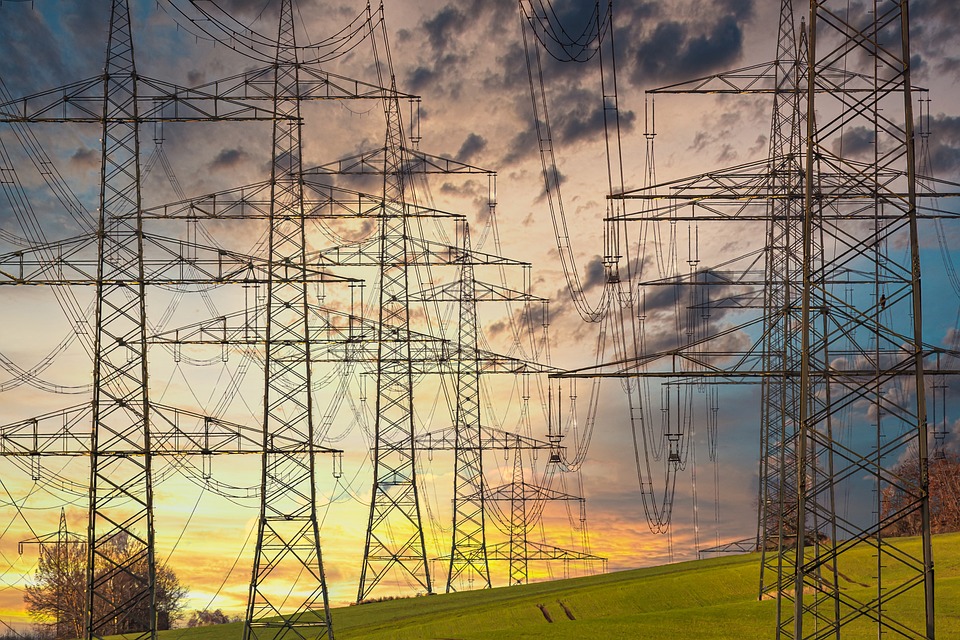The Future of Grid Management
As the world becomes increasingly dependent on energy, grid management has become a crucial aspect of maintaining a stable and efficient energy supply. Traditional grid management systems have limitations, and the need for a more intelligent and automated system has led to the development of smart grids.
What are Smart Grids?
Smart grids are modern electrical grids that use advanced technologies such as IoT sensors, AI, and renewable energy sources to manage and distribute energy efficiently. The main goal of smart grids is to optimize energy usage, reduce waste, and provide real-time monitoring and control.
Benefits of Smart Grids
- Improved Efficiency: Smart grids can optimize energy distribution and reduce energy loss by up to 10%.
- Enhanced Customer Experience: Smart grids provide real-time information and automated billing, making it easier for customers to manage their energy usage.
- Increased Reliability: Smart grids can detect and respond to power outages quickly, reducing the time it takes to restore energy supply.
- Reduced Carbon Footprint: Smart grids can integrate renewable energy sources, reducing the need for fossil fuels and reducing carbon emissions.
Role of IoT in Smart Grids
The Internet of Things (IoT) plays a crucial role in smart grids, as it enables real-time monitoring and control of energy distribution. IoT devices such as smart meters, sensors, and actuators collect and transmit data to the central control system, allowing for real-time monitoring and adjustments.
IoT Applications in Smart Grids
- Smart Meters: IoT-enabled smart meters provide real-time energy consumption data, allowing customers to monitor and control their energy usage.
- Grid Sensing: IoT sensors are used to monitor grid conditions, detecting anomalies and predictive maintenance needs.
- Device Management: IoT devices allow for remote monitoring and control of grid equipment, reducing maintenance costs and improving reliability.
Role of AI in Smart Grids
Artificial Intelligence (AI) is another critical component of smart grids, as it enables advanced data analysis and predictive maintenance. AI algorithms analyze data from IoT devices, weather forecasts, and energy demand, allowing for real-time predictions and adjustments to energy supply.
AI Applications in Smart Grids
- Predictive Maintenance: AI algorithms analyze sensor data to predict equipment failure, allowing for proactive maintenance and reducing downtime.
- Demand Response: AI-powered demand response systems adjust energy supply in response to changes in energy demand, optimizing energy usage and reducing peak demand.
- Grid Optimization: AI algorithms optimize energy distribution, minimizing energy waste and reducing peak demand.
Challenges and Opportunities
While smart grids offer numerous benefits, they also present several challenges. The integration of IoT devices and AI algorithms requires significant investments in infrastructure and workforce training. Additionally, concerns around data privacy and security must be addressed.
Addressing Challenges
- Infrastructure Upgrades: Utilities must invest in upgrading their infrastructure to accommodate IoT devices and AI algorithms.
- Workforce Training: Utilities must train their workforce to operate and maintain smart grid systems.
- Data Privacy and Security: Utilities must implement robust data privacy and security measures to protect customer data.
Conclusion
Smart grids are the future of grid management, offering improved efficiency, enhanced customer experience, increased reliability, and reduced carbon footprint. The integration of IoT devices and AI algorithms is critical to achieving these benefits. While challenges exist, the benefits of smart grids far outweigh the costs. Utilities must prioritize the integration of smart grid technologies to remain competitive and meet growing energy demands.
FAQs
- Q: What is a smart grid?
A: A smart grid is a modern electrical grid that uses advanced technologies such as IoT sensors, AI, and renewable energy sources to manage and distribute energy efficiently.
- Q: What is the role of IoT in smart grids?
A: IoT plays a crucial role in smart grids, as it enables real-time monitoring and control of energy distribution through smart meters, sensors, and actuators.
- Q: What is the role of AI in smart grids?
A: AI is critical in smart grids, as it enables advanced data analysis and predictive maintenance through predictive maintenance, demand response, and grid optimization.
- Q: What are the benefits of smart grids?
A: Smart grids offer improved efficiency, enhanced customer experience, increased reliability, and reduced carbon footprint.
Note: This is an example of how the HTML structure could be organized for the article. The content itself is fictional and intended only to illustrate the organization of the HTML structure.




_1.png?w=150&resize=150,150&ssl=1)
.png?w=150&resize=150,150&ssl=1)
.png?w=150&resize=150,150&ssl=1)